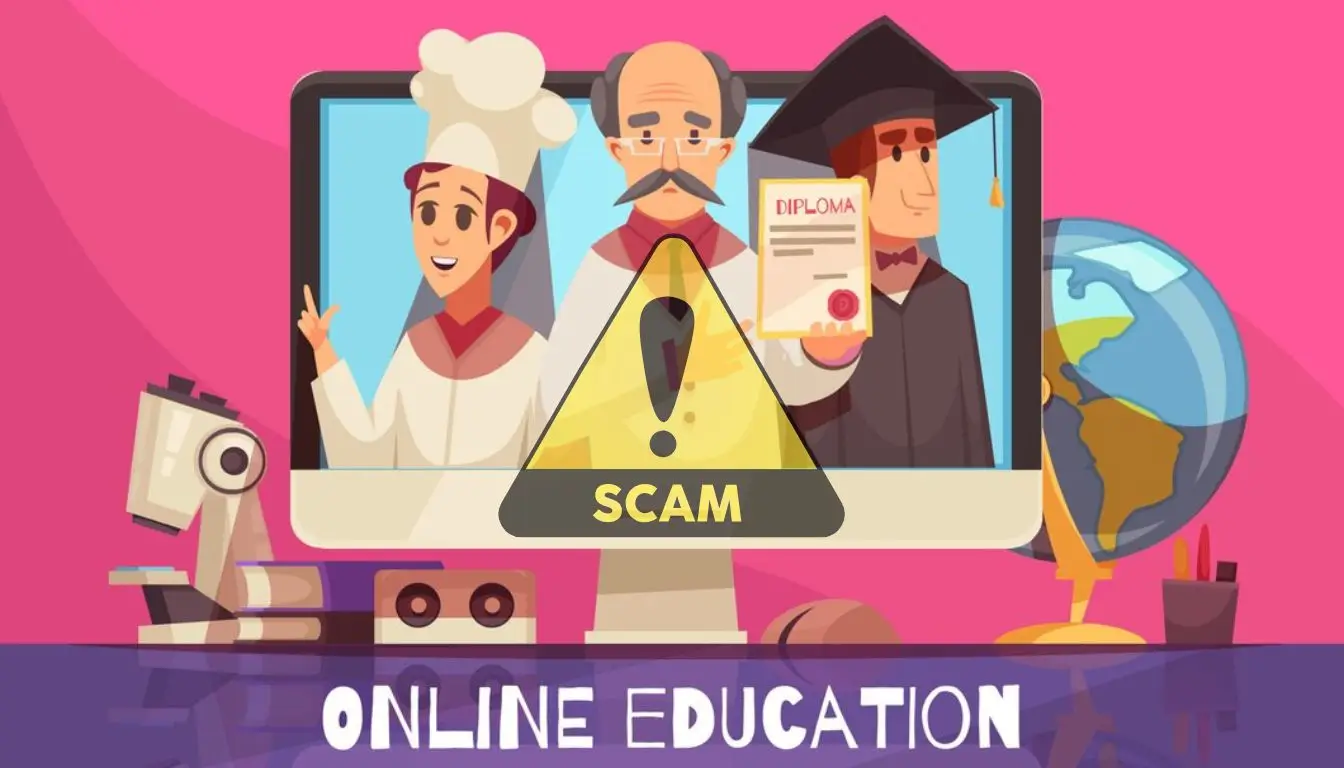The problem of scams in the field of online education
With the development of internet accessibility, more and more people are turning to online courses and educational platforms to gain new knowledge and skills. However, along with the growing popularity of online education, the number of scammers using this field to deceive users has increased. Scam through online courses is a serious problem that affects many users seeking self-improvement. Scammers extract money by offering non-existent or low-quality courses, posing as professionals in a particular field.
How to recognize fraudulent online courses
To avoid losses, it is important to be able to recognize signs of fraud on educational platforms. Below are the main points to pay attention to.
1. Unrealistic promises
Scammers often attract users' attention by promising quick results and easy achievements. On their websites or in advertisements, you may find statements like "Become an expert in a week" or "Earn thousands of dollars without leaving home." If a course promises too much in a short time, it may be the first signal of fraud.
2. Lack of information about instructors
Quality educational platforms provide detailed information about instructors, including their qualifications and experience. If there is no information about the people who will conduct the courses on the site, this should raise suspicions. _Also check for professional profiles of instructors on social media and professional platforms._
3. Low-quality or non-existent reviews
Reviews from other users can provide insight into the quality of the course. However, scammers may use fake reviews. Pay attention to similar and overly positive reviews - this may be a sign of falsification. Try to find independent reviews or mentions of the course on third-party sites and forums.
How to protect yourself from fraud on educational platforms
Taking precautions can help avoid falling into scammers' traps. Let's consider the main strategies for protection.
1. Research the platform
Before purchasing a course, conduct thorough research on the platform. Make sure it has a good reputation, verified reviews, and a transparent refund policy. Look at the platform's longevity - new and unknown platforms may be less reliable.
2. Use secure payment methods
Prefer using credit cards or secure payment systems like PayPal, which offer buyer protection. Avoid transferring money directly to an account, as this may make it difficult to recover funds in case of fraud.
3. Check the refund policy
Before buying, make sure the course offers a money-back guarantee. This provides the opportunity to get a refund if the course does not meet your expectations or stated promises.
4. Be cautious of promotions and discounts
Sometimes scammers use enticing discounts and promotions to attract buyers. If a discount seems too good to be true, it may be a trick. Also, find out if the discount is permanent - such practices may indicate the low value of the course.
What to do if you fall victim to a scam
If you still become a victim of fraud, it is important to act quickly and decisively. Here are a few steps to help restore justice.
1. Contact the platform's support service
Contact the platform's support and try to resolve the issue amicably. _Provide all payment evidence and explain the situation._
2. File a complaint
If the problem is not resolved, file a complaint with the appropriate consumer protection authorities. This can be a local or international regulator dealing with online commerce and user protection issues.
3. Share information
Report your experience on specialized forums and social networks. This will help warn other users of potential dangers and may draw attention to your case.
Main conclusions and recommendations
Scam through online courses and educational platforms is becoming an increasingly common phenomenon, but by arming yourself with knowledge and attentiveness, you can avoid losses. Be critical of promises, verify information, and trust only verified platforms. If you encounter fraud, do not stand aside – act to protect yourself and others from similar situations.
Conclusion
In the world of online education, it is important to remain vigilant and informed. Only in this way can you protect yourself from financial losses and disappointments. Use the suggested recommendations to recognize and avoid fraud on educational platforms, and do not be afraid to share your experience with others to create a safer and more reliable environment for all those seeking knowledge.
